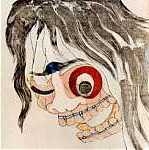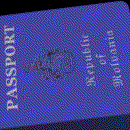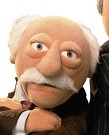| Hot Topics | |
|---|---|
English pronunciation
29 posts
• Page 1 of 1
English pronunciation
Yesterday I was teaching a class full of engineers, when at the end of the lesson, I asked if anyone had any questions and one of the quiter students raised his hand and asked me "why do Canadians all sound the same, while Americans don't, and why is Canadian English so clear".
My question for any or all of you Canadians out there, do we all sound the same? Dimwit you are from Toronto, right? DO you sound different from someone from Calgary do you think? Lurker I'm not sure where you are from in Canada, but what do you think.
I've never really thought of "Canadian English" being any different than that of English spoken in other countries, except for some reason so many Americans think we always pronounce "about, like aboot", which I've never heard. Anyway anybody have any ideas about this, let them fly. Even Jack, you are Canadian what do you think?
My question for any or all of you Canadians out there, do we all sound the same? Dimwit you are from Toronto, right? DO you sound different from someone from Calgary do you think? Lurker I'm not sure where you are from in Canada, but what do you think.
I've never really thought of "Canadian English" being any different than that of English spoken in other countries, except for some reason so many Americans think we always pronounce "about, like aboot", which I've never heard. Anyway anybody have any ideas about this, let them fly. Even Jack, you are Canadian what do you think?
Jacques Plante: "How would you like a job where, every time you make a mistake, a big red light goes on and 18,000 people boo?"
-

canman - Maezumo
- Posts: 1765
- Images: 0
- Joined: Thu Jul 25, 2002 11:08 pm
- Location: Hachinohe
Did you really have to ask?.....canman wrote:..Even Jack, you are Canadian what do you think?
GJ
[SIZE="1"]Worthy Linkage: SomaFM Net Radio - Slate Explainer - MercyCorp Donations - FG Donations - TDV DailyMotion Vids - OnionTV[/SIZE]
-

GuyJean - Posts: 5720
- Joined: Sun Apr 14, 2002 2:44 pm
- Location: Taro's Old Butt Plug
Just being all inclusive
You never know where nuggets of information will come from GJ. I just hope he doesn't hi-jack this thread and talk about how some J-girl( a term I don't like in the least) jumped his bones because had had such a cute accent.
Jacques Plante: "How would you like a job where, every time you make a mistake, a big red light goes on and 18,000 people boo?"
-

canman - Maezumo
- Posts: 1765
- Images: 0
- Joined: Thu Jul 25, 2002 11:08 pm
- Location: Hachinohe
pronunciation
i'm canadian too (from ottawa and a sens fan to boot). maybe they'll do something different from their regular choking during playoffs this season.. my friend in ottawa was streaming me the signal so i was watching some of the games here live.
my experience has been that there is far less variation in canadian accents of native english speakers despite the wide geographical dispersal. newfies definitely have an accent, though i hesitate to call what they speak "english" :P as do people in p.e.i. i've also found people from the buffalo area sound very much like people from ontario.
non-native speakers from quebec of course have a haccent people in hottawa know well as do first nations people.
my two cents. as for clarity and mutual intelligibility i have a bitch of a time understanding kiwis when i first meet them.
my experience has been that there is far less variation in canadian accents of native english speakers despite the wide geographical dispersal. newfies definitely have an accent, though i hesitate to call what they speak "english" :P as do people in p.e.i. i've also found people from the buffalo area sound very much like people from ontario.
non-native speakers from quebec of course have a haccent people in hottawa know well as do first nations people.
my two cents. as for clarity and mutual intelligibility i have a bitch of a time understanding kiwis when i first meet them.
"Cause I'm stranded all alone, in the gas station of love, and I have to use the self-service pumps.."
- "Weird Al" Yankovic
- "Weird Al" Yankovic
-

james - Posts: 1829
- Images: 1
- Joined: Fri Oct 22, 2004 9:21 am
- Location: off the deep end
Where in Ottawa?
I lived in Sandy Hill for four years while attending the Uof O. I was thinking that basically from Ottawa west there is not a lot of difference between the way people speak.
Of course your Maritimers do have that different way of speaking and you can pick it up so easily. As for Newfies they are newbies to Canada anyway so of course they will still have an accent or whatever it is they call it.
Of course your Maritimers do have that different way of speaking and you can pick it up so easily. As for Newfies they are newbies to Canada anyway so of course they will still have an accent or whatever it is they call it.
Jacques Plante: "How would you like a job where, every time you make a mistake, a big red light goes on and 18,000 people boo?"
-

canman - Maezumo
- Posts: 1765
- Images: 0
- Joined: Thu Jul 25, 2002 11:08 pm
- Location: Hachinohe
I'm from Victoria.
To west coast ears people from Toronto have a bit of a grating accent.
Except the Maritimes though I would agree that Canadian English is reasonably consistent, especially compared to the vast differences in the US.
To west coast ears people from Toronto have a bit of a grating accent.
Except the Maritimes though I would agree that Canadian English is reasonably consistent, especially compared to the vast differences in the US.
And you run and you run to catch up with the sun but it's sinking
Racing around to come up behind you again
The sun is the same in a relative way, but you're older
Shorter of breath and one day closer to death
Racing around to come up behind you again
The sun is the same in a relative way, but you're older
Shorter of breath and one day closer to death
-

FG Lurker - Posts: 7855
- Joined: Mon Nov 29, 2004 6:16 pm
- Location: On the run
Not a Canadian, but have known quite a few, especially in college (mostly puck-heads, those), and I would have to agree with James and Lurker.
While perhaps somewhat of a stereotype, the two big markers of Canadian English are "eh?" and the pronunciation of "-ou-" as in "house", "out", and "about". And I must say that "-ou-" sound is pretty obvious (even if it's not universal among Candians).
canman wrote:I've never really thought of "Canadian English" being any different than that of English spoken in other countries, except for some reason so many Americans think we always pronounce "about, like aboot", which I've never heard.
While perhaps somewhat of a stereotype, the two big markers of Canadian English are "eh?" and the pronunciation of "-ou-" as in "house", "out", and "about". And I must say that "-ou-" sound is pretty obvious (even if it's not universal among Candians).
-

Gilligan - Maezumo
- Posts: 1029
- Joined: Fri May 19, 2006 10:09 pm
- Location: The Big Nag
I'm an American but I've definitely heard some differences in the way Canadians sound. We'll leave the Newfies and Francophones out of the discussion, but basically I've heard two accents from Canadians. The one that I can't distiguish from a "generic" American accent (think Mid-West newscaster) and the one that I can automatically peg as Canadian. And it is words like about, house, and out that make it especially obvious. Though, I guess there are some Americans along the border that sound like that too.
BTW, about, house, out, etc. are pronounced pretty much the same in one of the oldtime Virginia accents.
BTW, about, house, out, etc. are pronounced pretty much the same in one of the oldtime Virginia accents.
Faith is believing what you know ain't so. -- Mark Twain
-

Samurai_Jerk - Maezumo
- Posts: 14387
- Joined: Mon Feb 09, 2004 7:11 am
- Location: Tokyo
Samurai_Jerk wrote: We'll leave the Newfies and Francophones out of the discussion, but basically I've heard two accents from Canadians. The one that I can't distiguish from a "generic" American accent (think Mid-West newscaster) and the one that I can automatically peg as Canadian
I only know the mid-west sound alikes. The Newfs don't count, but they're great. When I was on the buzz around Goose AB, Laborador, I got my baptism to fire. I got stranded in a snow drift on my way to the alert hanger in many minus's below zero and called the motor pool dispatcher, a Newf, for help and he promptly reassured me with a sound " Tondering Jesus me son, stay where youre to and I'll be where your're at".
And he was (I was sure hoping that he had said he was coming to get me, but I wasn't too confident until he showed to dig me out).
"There are those that learn by reading. Then a few who learn by observation. The rest have to piss on an electric fence and find out for themselves!"- Will Rogers

-

Greji - Posts: 14357
- Joined: Fri Jun 25, 2004 3:00 pm
- Location: Yoshiwara
Canadian English is essentially the same from coast to coast largely because it originates from United Empire Loyalists who arrived after the American Revolution. Maritime English differs somewhat because there was an existing English population prior to the influx of UELs. As far as me personally being able to tell the difference between Canadians of different regions -nope. The variation is so minor that it take more brains than I have to identify them.
-

dimwit - Maezumo
- Posts: 3827
- Images: 3
- Joined: Tue Jun 01, 2004 11:29 pm
jingai wrote:Education also changes the way people speak (I'm from Philly but don't sound like Rocky Balboa).
Prove it! Yell out "ADRIANNE!!!!!!!" about 5 or 6 times and we'll be the judges.
-

Iraira - Maezumo
- Posts: 3978
- Joined: Tue Jun 06, 2006 11:22 am
- Location: Sitting across from an obaasan who suffers from gastric reflux.
Re: English pronunciation
Brilliant, though his Japanese accent is a little off.
“To learn who rules over you, simply find out who you are not allowed to criticize.”
“I know not with what weapons World War III will be fought, but World War IV will be fought with sticks and stones.” ― Albert Einstein
-

Russell - Maezumo
- Posts: 8580
- Images: 1
- Joined: Fri Aug 13, 2010 11:51 pm
-

TennoChinko - Maezumo
- Posts: 1340
- Joined: Mon Feb 27, 2006 9:33 am
Re: English pronunciation
Russell wrote:
Brilliant, though his Japanese accent is a little off.
His American accents aren't that good. But he's young so I'm sure he'll improve if he keeps trying.
-

Samurai_Jerk - Maezumo
- Posts: 14387
- Joined: Mon Feb 09, 2004 7:11 am
- Location: Tokyo
Re: English pronunciation
canman wrote:"why do Canadians all sound the same, while Americans don't, and why is Canadian English so clear".

What did you even say back to that...eh?
I'm imagining all the Canadians this guy ever met were from BC and he's me Californians, Texans, + someone from Boston.
Kinda reminds me of Son Mayoshi claiming that his managers were upset with the lack of lingual respect they were getting in meeting and him trying to explain it away as "English is flat."
-

matsuki - Posts: 16047
- Joined: Wed Feb 02, 2011 4:29 pm
- Location: All Aisu deserves a good bukkake
Re: English pronunciation
Here's what the English language sounded like 500 years ago
Interestingly, it somewhat resembles classical Dutch, and especially Frysian, which is the language spoken in the north of the Netherlands. I think it also sounds a bit like Swedish, Norwegian, and Danish, though I am not a speaker of those languages, so it is difficult to judge.
Language is fluid, bae. It's always changing.
In fact, it shifts so frequently, differences can remain unseen/heard.
Just 12 months ago, we hadn't heard the term "on fleek". Those were simpler times.
Research shows the English language is evolving faster than ever, leaving an older generation trailing in the forgotten verbal dust.
But what happens when we go back further than, say, last year. How about 500 years ago? Can we comprehend our ancestors' tongue?
In short, absolutely not.
A Dutch University professor read aloud a political satire written 500 years ago by Englishman John Skelton, pronouncing each word as close to Middle English as possible.
Can you understand Speke Parott?
More
Interestingly, it somewhat resembles classical Dutch, and especially Frysian, which is the language spoken in the north of the Netherlands. I think it also sounds a bit like Swedish, Norwegian, and Danish, though I am not a speaker of those languages, so it is difficult to judge.
“To learn who rules over you, simply find out who you are not allowed to criticize.”
“I know not with what weapons World War III will be fought, but World War IV will be fought with sticks and stones.” ― Albert Einstein
-

Russell - Maezumo
- Posts: 8580
- Images: 1
- Joined: Fri Aug 13, 2010 11:51 pm
Re: English pronunciation
Don't want to nitpick, but I going to anyways. 500 year ago people were generally speaking what is referred to as Early Modern English. Middle English more or less died out around the time of the War of the Roses.
-

dimwit - Maezumo
- Posts: 3827
- Images: 3
- Joined: Tue Jun 01, 2004 11:29 pm
Re: English pronunciation
FG Lurker wrote:I'm from Victoria.
To west coast ears people from Toronto have a bit of a grating accent..
Yes, they do. And now that half of them or more have moved to yours and mine the accent here seems to be getting more like that, and I mean amongst their children not the migrants themselves. I have been accused a few times by trained linguists of having a Classic Vancouver accent: slightly lazy diction, and noticeably slower in delivery. Plus I know it's Kitsalaino not Kitsalahno. I can also readily spot a touch of Prairie: slightly flatter with at least a touch of heavy pleb; a dash of "Fargo", if you will.
dimwit wrote:Canadian English is essentially the same from coast to coast largely because it originates from United Empire Loyalists who arrived after the American Revolution. Maritime English differs somewhat because there was an existing English population prior to the influx of UELs. .
It certainly sounds plausible enough. I would caution that UEL speak would be regarded as Received Pronunciation, and that most native West Coasters don't do that, nor do many native Kingstonians, never mind Maritimers, but certainly as an educational template that would have been a big influence. I would also argue that the relatively recent development of the populations outside of the Upper & Lower Canada area is recent enough and enough people grew up with a non-native immigrant in the house that many, many Cdns learned their English at school, and speaking to others in the same boat, which would rapidly diffuse a rather standard pattern. Also, let's not forget the Scottish influence, mostly from Edinburghers and such, not Highlanders, which makes for that flatter accent with clipped diction. I was astounded how much posh Scots from the east part sound Canadian at times, and how much True Canadian dialect is Scottish.
Russell wrote:Interestingly, it somewhat resembles classical Dutch, and especially Frysian, which is the language spoken in the north of the Netherlands. I think it also sounds a bit like Swedish, Norwegian, and Danish, though I am not a speaker of those languages, so it is difficult to judge.
Frisian is the one I hear lots from trained cunning linguists (tee hee). So, if Frisian is that North coast bit, and the Saxons of Anglo-Saxony came from just north of them it would make sense that there is an abiding connection there. I have looked at written Frisian signs or such (I think; EDIT nothing from Google. Maybe it was just Dutch?) and thought how easy it was to correct for spelling and make sense of it. Heck, even Dutch for Thank You isn't much of a trip, nein? I also believe that English is classified in a similar way to the non-Finnish Nordic languages as a subset of Germanic. Old Low Germanic, maybe?
https://en.wikipedia.org/wiki/English_language
English has developed over the course of more than 1,400 years. The earliest forms of English, a set of Anglo-Frisian dialects brought to Great Britain by Anglo-Saxon settlers in the fifth century, are called Old English.
Plus, we got this, so we win:
Ingvaeonic nasal spirant law
https://en.wikipedia.org/wiki/Ingvaeoni ... pirant_law
Kuhl, mann.
-

kurogane - Maezumo
- Posts: 4483
- Joined: Fri Aug 04, 2006 5:24 pm
- Location: Here
Re: English pronunciation
Further on the Ingvaeonic idea, slightly conspiracy theory, but at the same time makes a lot of sense: claim that the English language was already used in Britain before the north German mercenaries were invited in. http://www.proto-english.org/sum1.html Your mind will be blown, blown I tell you!
-

wagyl - Maezumo
- Posts: 5950
- Images: 0
- Joined: Thu Mar 17, 2011 11:08 pm
- Location: The Great Plain of the Fourth Instance
Re: English pronunciation
it is an interesting idea, but there is so little to go on. Writing from the early post Roman period is rare at best, and archelogical site are few and sparse.
-

dimwit - Maezumo
- Posts: 3827
- Images: 3
- Joined: Tue Jun 01, 2004 11:29 pm
Re: English pronunciation
dimwit wrote:it is an interesting idea, but there is so little to go on. Writing from the early post Roman period is rare at best, and archelogical site are few and sparse.
While there are some placenames of Celtic origin in the South East of England, what I thought was particularly interesting is that the writings for a Welsh audience describing a victory for the Celtic Britons over the despised Anglo Saxon mercenaries refers to Bath using a Germanic name rather than Latin or Celtic. They claim it is a sign that English had a toehold even that far into the West, before the Anglo Saxons had any form of control or power over the region, enough that the Celtic speaking audience recognised the Germanic name and quite possibly used it themselves. http://www.proto-english.org/l11.html It wasn't a wholesale invasion with floods of people, so it would be very surprising if the peasantry also so quickly and completely abandoned their native Celtic tongue and adopted that of the newcomers, with barely a Celtic word left in English other than toponyms. Compare that to the situation with the Danish and Norman invasions.
We just believe the stories of the noble Celt because that is what we have been told. The idea that much of that accepted history is pure romanticism is quite compelling.
-

wagyl - Maezumo
- Posts: 5950
- Images: 0
- Joined: Thu Mar 17, 2011 11:08 pm
- Location: The Great Plain of the Fourth Instance
Re: English pronunciation
The problem I have with all this is that when the Romans conquered Britain during the first century, they made no mention of any Germanic tribes in Britain at the time. No mention of them in either Tacitus or Suetonius. Clearly the Romans knew the difference between Celtic and Germanic peoples having been involved in wars with both and indeed made a considerable effort to learn languages of subjugated people, translating both laws and religous customs into Roman.
-

dimwit - Maezumo
- Posts: 3827
- Images: 3
- Joined: Tue Jun 01, 2004 11:29 pm
Re: English pronunciation
An interesting and valid reply. The complete abandonment of Celtic elements in the English language becomes an interesting conundrum.
-

wagyl - Maezumo
- Posts: 5950
- Images: 0
- Joined: Thu Mar 17, 2011 11:08 pm
- Location: The Great Plain of the Fourth Instance
Re: English pronunciation
From reading that ARTICLE I would suggest that THE KEY to full understanding is not to accept cliched assumptions but to come up with an entirely new set based on your own identification of OBVIOUS PATTERNS.
I see them too, you know. Patterns.
I see them too, you know. Patterns.
-

kurogane - Maezumo
- Posts: 4483
- Joined: Fri Aug 04, 2006 5:24 pm
- Location: Here
Re: English pronunciation
kurogane wrote:From reading that ARTICLE I would suggest that THE KEY to full understanding is not to accept cliched assumptions but to come up with an entirely new set based on your own identification of OBVIOUS PATTERNS.
I see them too, you know. Patterns.
You forgot to underline cliched and suggest.
-

dimwit - Maezumo
- Posts: 3827
- Images: 3
- Joined: Tue Jun 01, 2004 11:29 pm
Re: English pronunciation
Hehehe. I ran out of ENthUsIASMS!!!!!!!!!!! I also like the use of the cross out of DISapproved terms.
An interesting topic, but that article Wagyl linked was a touch too Truth Seekers friendly for me. It may be OUT THERE but so are they. Which Wagyl knows. Which is why he linked it
Back when Scotland was de-evolving there was quite a movement to reestablish Scottish Gaelic with a huge Cape Breton contingent jumping on board. Then sombody pointed out that east and south of some line or other Scotland has never been anything but English speaking, which helped to highlight what a shame it is when people with opinions don't pay attention in school. I have heard that the Gaelic revival is going well in the west where they actually did speak it and were punished for doing so, which is a great thing. I could barely understand a word at a pub on Skye, then a kindly local pointed out it was 80% Gaelic and they were just having a go at me.
An interesting topic, but that article Wagyl linked was a touch too Truth Seekers friendly for me. It may be OUT THERE but so are they. Which Wagyl knows. Which is why he linked it
Back when Scotland was de-evolving there was quite a movement to reestablish Scottish Gaelic with a huge Cape Breton contingent jumping on board. Then sombody pointed out that east and south of some line or other Scotland has never been anything but English speaking, which helped to highlight what a shame it is when people with opinions don't pay attention in school. I have heard that the Gaelic revival is going well in the west where they actually did speak it and were punished for doing so, which is a great thing. I could barely understand a word at a pub on Skye, then a kindly local pointed out it was 80% Gaelic and they were just having a go at me.
-

kurogane - Maezumo
- Posts: 4483
- Joined: Fri Aug 04, 2006 5:24 pm
- Location: Here
Re: English pronunciation
kurogane wrote:Back when Scotland was de-evolving there was quite a movement to reestablish Scottish Gaelic with a huge Cape Breton contingent jumping on board. Then sombody pointed out that east and south of some line or other Scotland has never been anything but English speaking, which helped to highlight what a shame it is when people with opinions don't pay attention in school.
It's English, Captain, but not as we know it.
-

yanpa - Posts: 5671
- Images: 11
- Joined: Sun Nov 04, 2007 11:50 am
- Location: Tokyo
29 posts
• Page 1 of 1
Who is online
Users browsing this forum: No registered users and 3 guests

